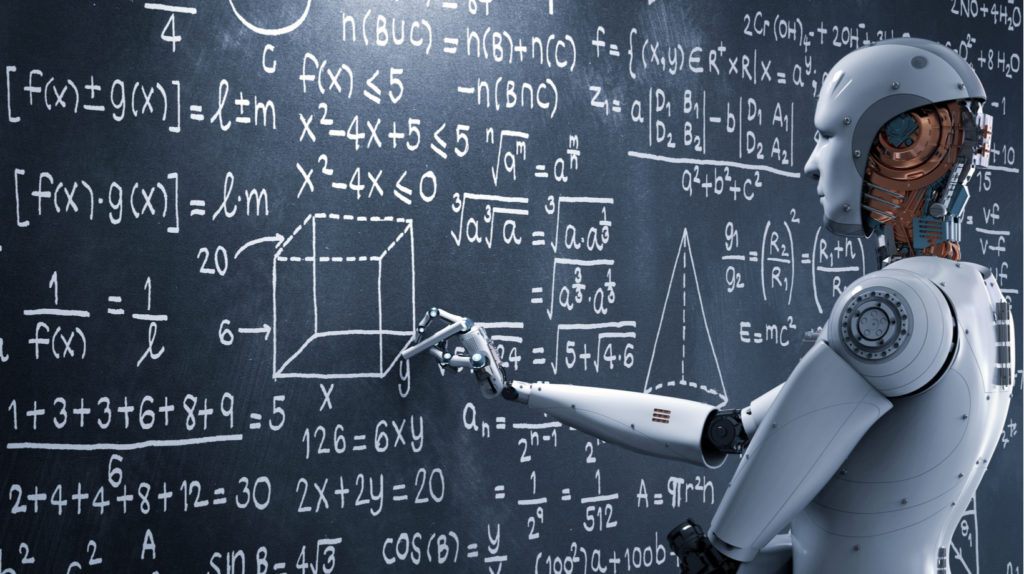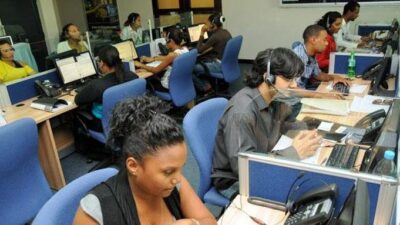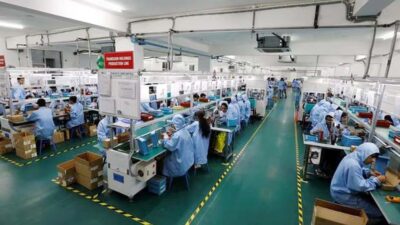Mauritius, a small island nation in the Indian Ocean, has made significant strides in its education system, achieving near-universal literacy and establishing a strong foundation for human development. However, challenges such as resource constraints, disparities in educational access, and the need to prepare students for a rapidly evolving global economy persist. Artificial Intelligence (AI) offers transformative opportunities to address these challenges, enhance educational outcomes, and position Mauritius as a regional leader in innovative education. This article explores how AI can be leveraged to improve education in Mauritius, focusing on personalized learning, teacher support, administrative efficiency, and equitable access.
The Current State of Education in Mauritius
Mauritius boasts a robust education system with free primary and secondary education, a literacy rate exceeding 90%, and a commitment to inclusive education. The government has prioritized initiatives like the Nine-Year Continuous Basic Education (NYCBE) program to ensure holistic development and reduce dropout rates. However, the system faces challenges, including:
- Uneven Resource Distribution: Rural schools often lack the infrastructure and qualified teachers available in urban areas.
- Language Barriers: Instruction in English and French, alongside Creole and other local languages, can pose challenges for students.
- Skill Gaps for the Future: The global shift toward digital economies requires skills in STEM (Science, Technology, Engineering, and Mathematics), critical thinking, and digital literacy, which the current curriculum may not fully address.
- Teacher Workload: Teachers often juggle large class sizes and administrative tasks, limiting their ability to focus on personalized instruction.
AI can address these challenges by offering scalable, cost-effective, and innovative solutions tailored to Mauritius’ unique context.
Personalized Learning through AI
One of the most promising applications of AI in education is personalized learning, which tailors educational content to individual student needs. In Mauritius, where class sizes can be large and student abilities diverse, AI-driven platforms can provide customized learning experiences.
Adaptive Learning Platforms
AI-powered adaptive learning systems, such as those used by platforms like Khan Academy or Duolingo, analyze student performance in real-time to adjust the difficulty and pace of lessons. In Mauritius, such platforms could:
- Support Multilingual Education: AI tools can deliver lessons in English, French, or Creole, adapting to a student’s preferred language while gradually improving proficiency in others. For example, AI chatbots could assist students in practicing English or French through interactive conversations.
- Address Learning Gaps: By identifying areas where students struggle—such as mathematics or science—AI can recommend targeted exercises and resources. This is particularly valuable for students preparing for the Primary School Achievement Certificate (PSAC) or Certificate of Primary Education (CPE) exams.
- Cater to Diverse Needs: AI can support students with special needs by offering tailored content, such as text-to-speech for visually impaired students or gamified learning for those with attention difficulties.
Case Study Potential
Mauritius could pilot AI-driven platforms in schools, starting with secondary institutions in urban areas like Port Louis and extending to rural regions like Rodrigues. Partnerships with global edtech providers or local developers could create platforms tailored to the Mauritian curriculum, incorporating subjects like Kreol Morisien and cultural studies.
Empowering Teachers with AI Tools
Teachers are the backbone of any education system, and AI can alleviate their workload while enhancing their effectiveness. In Mauritius, where teacher shortages and administrative burdens are common, AI can play a pivotal role.
AI as a Teaching Assistant
AI tools can automate repetitive tasks, allowing teachers to focus on instruction and mentorship. For example:
- Automated Grading and Feedback: AI can grade assignments and exams, providing instant feedback to students. Platforms like Gradescope use AI to assess written answers, which could streamline grading for Mauritius’ national exams.
- Lesson Planning Support: AI tools like TeachFX or ChatGPT can generate lesson plans, suggest teaching strategies, and provide resources aligned with the Mauritian curriculum. This is particularly useful for subjects like science and mathematics, where teachers may need updated materials to teach emerging topics like coding or robotics.
- Professional Development: AI-driven platforms can offer personalized training for teachers, recommending courses based on their teaching style or subject expertise. For instance, an AI system could identify a teacher’s need for training in digital literacy and suggest relevant online modules.
Enhancing Classroom Engagement
AI can also enhance classroom dynamics. Interactive tools like virtual reality (VR) simulations or AI-driven educational games can make subjects like history or geography more engaging. For example, students could explore Mauritius’ colonial history through AI-generated virtual tours of historical sites like Aapravasi Ghat.
Streamlining Administrative Processes
School administration in Mauritius often involves manual processes that consume time and resources. AI can optimize these operations, allowing schools to focus on teaching and learning.
AI in School Management
- Resource Allocation: AI can analyze school data to optimize resource distribution, such as allocating teachers or materials to underserved rural schools. Predictive analytics could forecast student enrollment trends, helping the Ministry of Education plan infrastructure investments.
- Attendance and Performance Tracking: AI systems can monitor student attendance and performance, flagging at-risk students for early intervention. This is critical in reducing dropout rates, especially in secondary schools.
- Timetabling and Scheduling: AI algorithms can create efficient timetables, balancing teacher availability and student needs. This is particularly useful in schools with limited staff.
Data-Driven Policy Making
The Ministry of Education could use AI to analyze national education data, identifying trends and gaps. For example, AI could highlight regions with lower PSAC pass rates, enabling targeted interventions. This data-driven approach aligns with Mauritius’ vision of becoming a knowledge-based economy.
Bridging the Digital Divide and Ensuring Equity
While AI offers immense potential, its implementation must address Mauritius’ digital divide to ensure equitable access. Rural areas and low-income communities often lack reliable internet and devices, which could exacerbate educational inequalities.
Strategies for Equitable AI Adoption
- Government-Led Infrastructure Investment: The Mauritian government, through initiatives like the Mauritius Broadband Policy, could expand internet access to rural schools. Mobile AI apps that work offline could also be developed to serve remote areas like Rodrigues.
- Public-Private Partnerships: Collaborations with tech companies could provide low-cost devices and AI tools to schools. For example, partnerships with companies like Microsoft or Google could bring AI platforms like Azure AI or Google Classroom to Mauritian schools at subsidized rates.
- Community Learning Hubs: AI-enabled learning kiosks or community centers could provide access to digital tools in underserved areas, offering students opportunities to engage with AI platforms outside school hours.
Inclusive AI Design
AI tools must be designed with Mauritius’ diverse population in mind. This includes supporting multiple languages, accommodating students with disabilities, and reflecting cultural contexts in content. For instance, AI platforms could incorporate stories from Mauritian folklore to make learning more relatable.
Preparing Students for a Digital Future
As Mauritius aims to become a regional hub for technology and innovation, its education system must prepare students for careers in AI, data science, and other emerging fields. AI can play a dual role: as a tool for learning and a subject of study.
Integrating AI into the Curriculum
- Coding and AI Literacy: Introducing AI and coding in secondary schools, as part of the NYCBE, can equip students with future-ready skills. Platforms like Code.org or Scratch, adapted for Mauritius, could teach students to create simple AI models.
- STEM Education: AI can enhance STEM learning by providing simulations and virtual labs. For example, students could use AI to model environmental changes in Mauritius’ coral reefs, fostering both scientific inquiry and environmental awareness.
- Vocational Training: AI can support vocational education by offering simulations for skills like hospitality or agriculture, key sectors in Mauritius’ economy.
Inspiring Innovation
Mauritius could host AI-focused hackathons or innovation challenges for students, encouraging them to develop solutions for local issues, such as sustainable tourism or coastal erosion. Such initiatives would foster creativity and position Mauritius as a hub for young tech talent.
Challenges and Ethical Considerations
While AI holds immense promise, its implementation in Mauritius must address several challenges:
- Cost and Scalability: Developing and deploying AI tools requires significant investment. Mauritius could explore cost-sharing models with international organizations or leverage open-source AI platforms.
- Teacher and Student Training: Both educators and students need training to use AI tools effectively. The government could integrate AI literacy into teacher training programs at institutions like the Mauritius Institute of Education.
- Data Privacy and Ethics: AI systems must comply with data protection regulations, such as Mauritius’ Data Protection Act 2017, to safeguard student information. Transparent AI algorithms are essential to avoid bias and ensure fairness.
- Cultural Relevance: AI tools must respect Mauritius’ multicultural identity, avoiding content that may alienate certain communities.
A Roadmap for AI in Mauritian Education
To successfully integrate AI into its education system, Mauritius could adopt a phased approach:
- Pilot Programs (2025–2027): Launch AI initiatives in select schools, focusing on adaptive learning platforms and teacher support tools. Evaluate outcomes to refine strategies.
- Infrastructure Expansion (2027–2030): Expand internet access and device availability to rural schools, ensuring equitable access to AI tools.
- Curriculum Integration (2030–2035): Incorporate AI and coding into the national curriculum, with a focus on STEM and vocational training.
- National AI Education Policy: Develop a comprehensive policy to guide AI adoption, emphasizing equity, ethics, and sustainability.
AI has the potential to revolutionize education in Mauritius by personalizing learning, empowering teachers, streamlining administration, and preparing students for a digital future. By addressing challenges like the digital divide and ethical concerns, Mauritius can leverage AI to create an inclusive, innovative, and future-ready education system. As the nation continues its journey toward becoming a knowledge-based economy, AI can be a catalyst for educational excellence, ensuring that every Mauritian student has the tools and opportunities to thrive in a rapidly changing world.





